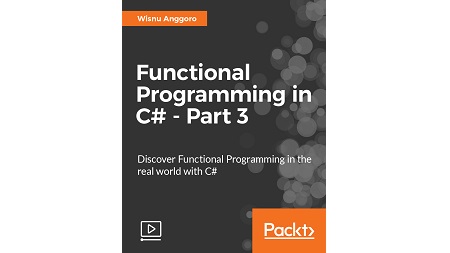
English | MP4 | AVC 1920×1080 | AAC 44KHz 2ch | 1h 37m | 421 MB
Uncover the secrets of functional programming using C# and change the way you approach your applications forever
Functional programming makes your application faster, improves performance, and increases your productivity. C# code is written at a higher level of abstraction, so that code will be closer to business requirements, abstracting away many low-level implementation details. This video will build on from part 1 and will help you develop a deep understanding of the concepts and practices of LINQ and recursion in C#. You will be introduced to concepts such as lazy evaluation and eager evaluation and will learn about its usage and benefits. From here, you will learn about Monads–the computational builder in Functional Programming and its usage. Going forward, you will learn to build a fully functional app by implementing the concepts learned in both the courses. By the end of the video, you will be able to write code using the best approach and will be able to perform unit testing in functional programming – changing how you write your applications and revolutionizing your projects.
This course takes a pragmatic approach and shows you techniques to write better functional constructs in C#. We’ll also show you how these concepts can be applied in business scenarios.
What You Will Learn
- Develop an application using the functional approach
- Implement unit testing to functionally program code
- Create efficient code using functional programming
Table of Contents
01 The Course Overview
02 Exploring Recursion
03 Using Tail Recursion
04 Recursion in a Functional Approach Using LINQ Aggregate
05 Introduction to Laziness
06 Caching Expensive Resources
07 Dissecting Pattern Matching in Functional Programming
08 Introducing Monad as a Design Pattern
09 Developing Functional Programming in Windows Forms and Creating the Code behind It
10 Creating the Engine Code in an Imperative Approach
11 Creating the Engine Code in the Functional Approach
12 Coding Best Practices in Functional C#
13 Separating the Code from Domain Logic and Mutable Shell
14 Running Domain Logic in Unit Testing and Adding the Mutable Shell into Code
Resolve the captcha to access the links!